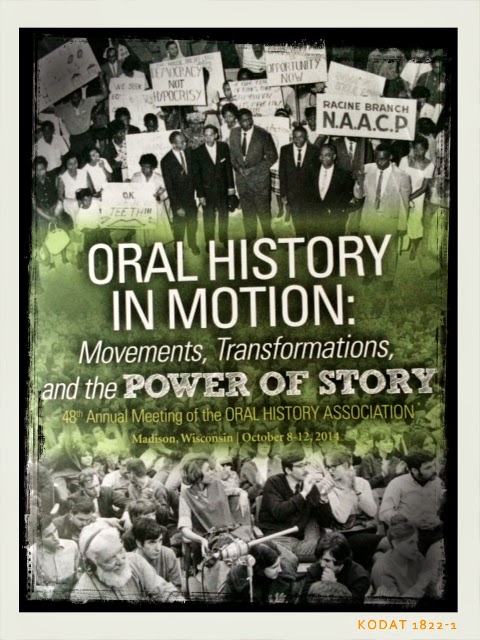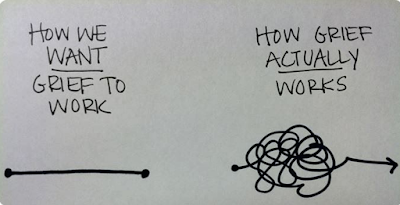Global Exploring One Book at a Time
It is the end of the semester. I have to suppress a sigh every time a student appears at my door. And yet, I am still very much on the clock and they need me to be more, not less, responsive. Or, as one suggested, "You could just give us all A's and be done."
Sigh.
In a search for some inspiration to lighten my mood, I came across the story of British freelance writer and sub-editor Ann Morgan, who took it upon herself to read a book from each of 197 countries (all of the UN-recognized countries plus Palestine and Taiwan.) In her project -- My Year of Reading the World, Morgan set out to answer one question in particular: "Can a person in London access all of world literature?"
Morgan started her "book packing" project in 2012. She read 4 books a week and blogged about it here. The Anglophone world press got excited about her challenge and the wonderful, strange things that it made happen in the world and shared her story here, here and here (to name a few places.)
Here is a lovely visualization of her endeavor.
There are so many wonderful things about this project. Where to start? Well, first, the idea itself. I love that Morgan made the commitment to expanding her global reading reach, noting as she did that only 4.5% of books sold in the UK are books in translation. I seriously admire her tenacity (as Anna Karenina stares me down across the coffee table.) She read several hours a day every day and then she blogged about it. Second, it is wonderful and important that she has raised awareness about the ways in which even our access to world literature has been colonized -- I am a voracious reader and I try to get my hands on books written by people who aren't from the USA, the UK and Commonwealth nations. But this has made me think a lot about who polices the publishing borders and how to be more creative about getting book recommendations.
Of course, what I love most about "My Year of Reading the World" is the virtual community building, the crowd-sourcing, the DIY translations and emphatic recommendations readers from the world over sent to Morgan. It is a such a beautiful thing that she created precisely because it flowered into something so much bigger than herself. As Morgan tells it:
While for Morgan, fiction made the world "real," there is some deliciously whimsical about her project.
Around here, we've been whipping the same damn "the humanities must defend their existence" horse to death again. (And again. And again. And again.) Someone actually told me my assignments are pointless, since they don't help people become better waiters or cashiers, and he was only partially kidding. This love story of global reading heartens and inspires me. It reminds me that despite what the haters say and end-of-term exams suggest, we are thinking, imaginative, creative beings. All of us, in one way or another.
In case you feel like expanding your reading reach, this is a list of some of her favorites that are readily available:
Sigh.
In a search for some inspiration to lighten my mood, I came across the story of British freelance writer and sub-editor Ann Morgan, who took it upon herself to read a book from each of 197 countries (all of the UN-recognized countries plus Palestine and Taiwan.) In her project -- My Year of Reading the World, Morgan set out to answer one question in particular: "Can a person in London access all of world literature?"
Morgan started her "book packing" project in 2012. She read 4 books a week and blogged about it here. The Anglophone world press got excited about her challenge and the wonderful, strange things that it made happen in the world and shared her story here, here and here (to name a few places.)
Here is a lovely visualization of her endeavor.
There are so many wonderful things about this project. Where to start? Well, first, the idea itself. I love that Morgan made the commitment to expanding her global reading reach, noting as she did that only 4.5% of books sold in the UK are books in translation. I seriously admire her tenacity (as Anna Karenina stares me down across the coffee table.) She read several hours a day every day and then she blogged about it. Second, it is wonderful and important that she has raised awareness about the ways in which even our access to world literature has been colonized -- I am a voracious reader and I try to get my hands on books written by people who aren't from the USA, the UK and Commonwealth nations. But this has made me think a lot about who polices the publishing borders and how to be more creative about getting book recommendations.
Of course, what I love most about "My Year of Reading the World" is the virtual community building, the crowd-sourcing, the DIY translations and emphatic recommendations readers from the world over sent to Morgan. It is a such a beautiful thing that she created precisely because it flowered into something so much bigger than herself. As Morgan tells it:
Before I knew it, people all over the planet were getting in touch with ideas and offers of help. Some posted me books from their home countries. Others did hours of research on my behalf. Several writers, like Turkmenistan’s Ak Welsapar and Panama’s Juan David Morgan, sent me unpublished translations of their novels.
While for Morgan, fiction made the world "real," there is some deliciously whimsical about her project.
Around here, we've been whipping the same damn "the humanities must defend their existence" horse to death again. (And again. And again. And again.) Someone actually told me my assignments are pointless, since they don't help people become better waiters or cashiers, and he was only partially kidding. This love story of global reading heartens and inspires me. It reminds me that despite what the haters say and end-of-term exams suggest, we are thinking, imaginative, creative beings. All of us, in one way or another.
In case you feel like expanding your reading reach, this is a list of some of her favorites that are readily available:
- Albania – Ismail Kadare Broken April
- Canada – Nicole Brossard Mauve Desert
- Czech Republic – Bohumil Hrabal Too Loud a Solitude
- Mongolia – Galsan Tschinag The Blue Sky
- Myanmar – Nu Nu Yi Smile as they Bow
- Pakistan – Jamil Ahmad The Wandering Falcon
- Serbia – Srdjan Valjarevic Lake Como (limited availability)
- Sierra Leone – Ismael Beah A Long Way Gone
- Tajikistan – Andrei Volos Hurramabad
- Togo – Tete-Michel Kpomassie An African in Greenland












I love ideas like this, I think we can learn a lot about the world through literature. Before I studied Russian History, I learned about it through Russian literature. I think I actually know more about India through literature than study of history.
ReplyDeleteOh, wow. I'm impressed at her project. Thanks for sharing. (Brings to mind someone's list of romance books, one from each state in the U.S.) Now I'm pondering at the possibilities (and at the same time a little daunted).
ReplyDeleteI know, Matthew and Eppu. It is such a cool project. I think I am starting with Hurramabad.
ReplyDeleteanother great reading list: http://www.salon.com/2014/05/02/this_is_what_junot_diaz_wants_his_undergrad_students_to_read/?utm_source=facebook&utm_medium=socialflow
ReplyDelete